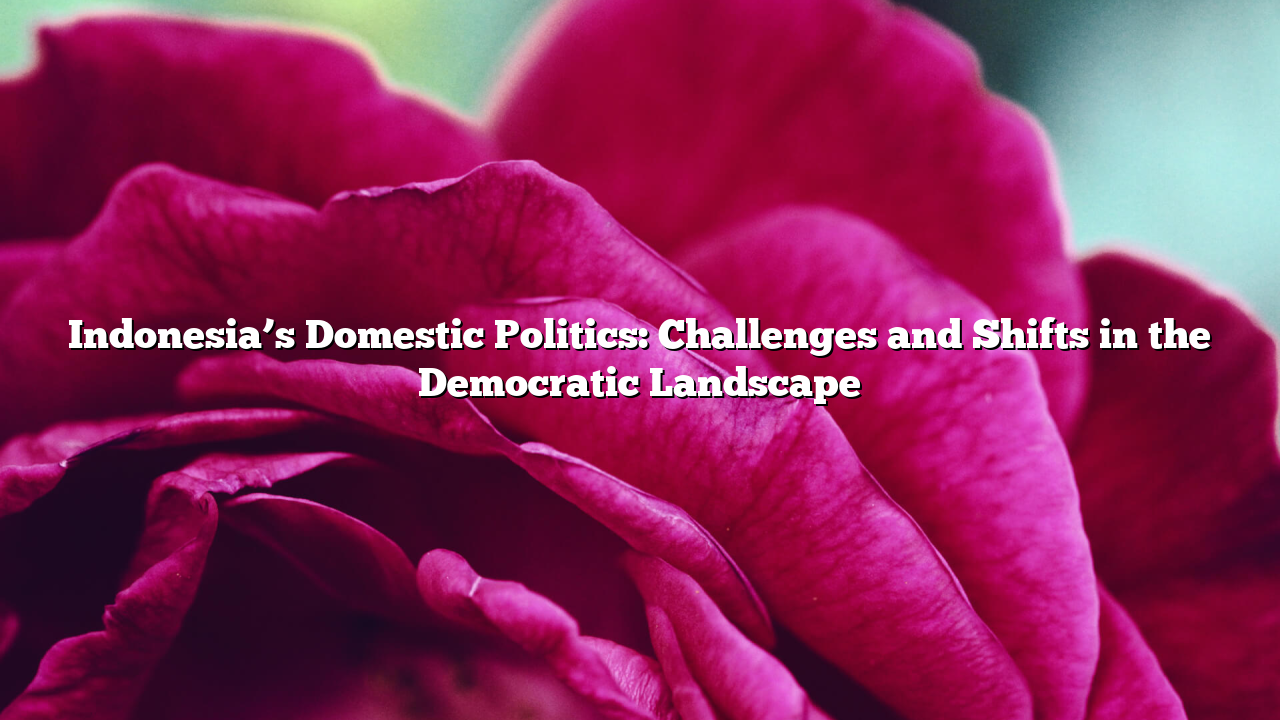Indonesia, as the world’s third-largest democracy, has long been considered a model of political transformation in Southeast Asia. Since the fall of Suharto’s authoritarian regime in 1998, the nation has built a system that allows direct presidential elections, multiparty participation, and a relatively free press. However, like any democracy, Indonesia’s political landscape is not without its challenges. Domestic politics today reflects a complex interplay between democratic consolidation, the role maritim4d of political parties, governance issues, and the ever-present influence of identity-based politics.
One of the most significant features of Indonesia’s political system is its multiparty structure. With more than a dozen political parties actively participating in national elections, coalition-building has become a necessity for governance. This creates both opportunities and complications. On one hand, coalitions ensure that diverse voices are represented in government. On the other hand, they often lead to compromises that weaken the clarity of policy agendas. Party loyalty can sometimes take precedence over public interest, raising questions about accountability and consistency.
Another major aspect of Indonesia’s domestic politics is the strength of the presidency. Since the introduction of direct presidential elections in 2004, Indonesian presidents have wielded considerable influence over both domestic and foreign policies. President Joko Widodo, for instance, has emphasized infrastructure development and economic reforms as his legacy. Yet, his administration has also faced criticism for perceived democratic backsliding, including laws seen as limiting civil liberties and press freedom. This tension between strong executive leadership and the need for checks and balances remains a central theme in Indonesian politics.
The role of identity politics, particularly religion and ethnicity, continues to shape domestic dynamics. Indonesia is home to the world’s largest Muslim population, but it is also a pluralistic society with hundreds of ethnic groups and multiple religious communities. Political campaigns have occasionally exploited religious and ethnic sentiments, leading to polarization. The 2017 Jakarta gubernatorial election, for example, exposed deep social divides when issues of religion dominated the political discourse. While democracy allows freedom of expression, the manipulation of identity politics poses a risk to social cohesion.
Corruption remains another enduring challenge within Indonesian politics. Despite the existence of the Corruption Eradication Commission (KPK), cases involving public officials continue to surface. Political financing, bureaucratic inefficiency, and entrenched patronage networks hinder reforms. These issues undermine public trust in political institutions, highlighting the need for stronger governance mechanisms and greater transparency. Without significant progress in this area, democratic credibility may be at stake.
In recent years, younger generations have begun to play a more visible role in shaping domestic politics. With the rise of social media, youth voices are amplified in ways that were previously impossible. Online activism, grassroots movements, and digital platforms have given young Indonesians a space to demand accountability and progressive policies. However, misinformation and digital polarization also accompany this shift, requiring a careful balance between free expression and responsible communication.
Looking ahead, Indonesia faces several pressing political questions. How will future leaders balance economic growth with environmental sustainability? To what extent will political parties reform themselves to prioritize public interests over internal power struggles? And most importantly, how can Indonesia preserve democratic values while addressing the challenges of corruption, inequality, and identity-based conflicts? The answers to these questions will define the trajectory of Indonesia’s political development in the coming decades.
In conclusion, Indonesia’s domestic politics is a story of both achievement and struggle. The country has successfully maintained democratic institutions for more than two decades, a remarkable feat in a region where authoritarian tendencies persist. Yet, the persistence of corruption, the rise of identity politics, and concerns about democratic backsliding show that the journey is far from over. Indonesia’s ability to navigate these challenges will determine whether it continues to stand as a beacon of democracy in Southeast Asia or risks slipping into the same pitfalls that have weakened democracies elsewhere.
